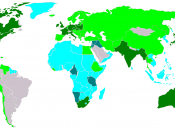Although Hjalmar Branting said "The League of Nations is not the only organization, albeit the most official, which has inscribed the maintenance of peace through law on its banner." , the League of Nations was the most successful organization in the 1920's. There were three major reasons why the League was successful in the 1920's. They were victorious, because they settled disputes over countries, had many organizations, and last but not least they were successful because of the signing of the Pact of Paris.
In the 1920's the League of Nations managed to settle many disagreements between countries, which made the League of Nations a successful organization. Although the League of Nations failed to prevent the annexing of Vilnius by Poland in 1922, or Italy invading Corfu in 1923, they also achieved good things. They solved the problem over the ÃÂ land Island between Finland and Sweden. After the decision of the League of Nations those 6,500 islands remained a part of Finland but were govern by both countries .
Also the League of Nations settled the argument over Upper Silesia by which Germany and Poland were involved. Both of the countries wanted to have to Upper Silesia and the League of Nations decided to divide the land by two. And the last successful settlement in the 1920's was between Greece and Bulgaria in 1925. The Greek invaded Bulgaria as a reply to the murdering of Greek people. The League interfered and Greece became angry about their decision, reminding them of the incident between Italy and Greece in 1923, where Italy attacked them and Greece had to pay Italy for that and apologize. Those three incidents in the 1920's made the League a successful organization.
An action which showed the success of the League of Nations was the establishment of...


